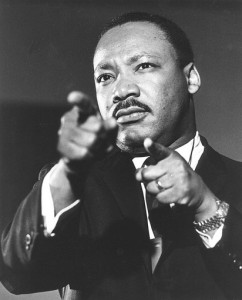 aNewDomain — People make all kinds of promises, especially during election season.
aNewDomain — People make all kinds of promises, especially during election season.
Things have gotten so polarized, so strident, that people say they’ll move someplace else if their candidate is defeated. Democrats said they were headed for Denmark if Romney won in 2012; Republicans threatened to go to … I don’t know, wherever Republicans go. Galt Island, maybe. Nobody really did, though. We’ve still got Ted Nugent, for example.

These are promises made in the heat of battle, when we’re at the game, half-drunk, and our team is down by six but threatening a comeback.
They’re the histrionic bullshit teenagers say: If Johnny goes to the prom with Suzie instead of with me I’ll just kill myself.
You shouldn’t take it that seriously.
Probably that’s what’s going on with Rick Scarborough, the Texas pastor who threatened to self-immolate if same-sex marriage was cleared by the Supreme Court.
A little too much polarization, a bit too much certainty about the outcome, lots too much hyperbole, and maybe room for thickening of the frontal lobes. And maybe alcohol. I don’t know him.

So, we have same-sex marriage now. We still have all the cranks and hosers who threatened to leave if Mr. Obama won re-election, and we still have Rick Scarborough. He didn’t follow through and, while the evil and most snarky part of me wants to remind him that he made a promise, basic human decency has to win out.
Let the man save face. Suicide probably isn’t the answer.
Besides, nobody pays that much attention to immolations anyway.
Maybe Scarborough did some reading and discovered that if he set himself on fire to make a political statement, he would all but disappear from history.
So, check this out: He wouldn’t have been the first Texas pastor to self-immolate to make a statement. Bet you a dollar you can’t name another.
 I can. It’s Charles Moore. The 79-year-old retired reverend threatened the same thing in 2014 to protest ongoing racism. Moore had worked as an activist for decades. There was a hunger strike in the 1990s over heterosexist language in the Methodist Church. There were missions to the poorest nations, vigils against the death penalty.
I can. It’s Charles Moore. The 79-year-old retired reverend threatened the same thing in 2014 to protest ongoing racism. Moore had worked as an activist for decades. There was a hunger strike in the 1990s over heterosexist language in the Methodist Church. There were missions to the poorest nations, vigils against the death penalty.
But when Moore looked around, he saw that he’d accomplished nothing — or next to it. People continue to judge one another. People of color are still poor, people in the former colonies are still poor. And many of us still hate gays (bringing us back around to Rick Scarborough).
So, seeing that he could not make any difference individually and people would not join him in large numbers in civil protest, he decided to take the only control left to him.
 So Moore wrote a note about all these issues — it’s been suppressed; you can’t read it — then he set himself on fire. Just as he’d promised.
So Moore wrote a note about all these issues — it’s been suppressed; you can’t read it — then he set himself on fire. Just as he’d promised.
He hoped this would get a lot of attention. That we’d read his letter, see how serious this was. Maybe even that there would be a rash of such immolations as in Tibet during the Chinese occupation, or the various fires that demonstrated against the Vietnam War.
Martin Luther King, Jr. was careful to note that peaceful resistance is only effective when the opponent has a conscience. He put a lot of faith in us white folks when, for year after year, we demonstrated no conscience at all. Eventually, when the worst offenses were televised, his movements gained traction.
So why have you never heard of Rev. Charles Moore?
There have been several self-immolations over the past few years, mostly in the cause of peaceful protest, and seemingly by people of good conscience who have run out of hope. Even Dr. King despaired, and he enjoyed far more success than most activists ever do. We don’t hear about them, though. The easy answer is that we’re just not interested. The hard answer is that the folks who own most of the media outlets remember Tibet and Vietnam.
There’s one sure way to diffuse self-immolations, rob them of their power: just ignore them. I can’t tell you all the immolations that have happened, not even the recent ones here in the United States. Because they weren’t reported or were dismissed as cranks.
Have you ever believed in something so strongly you were willing to die for it, to die publicly and painfully as a political statement?
Have you ever despaired of getting your meaning across, been willing to live for something but seeing only how you could die for it?
Rick Scarborough suggested he had. Maybe. To be fair, he never said, “I will set myself on fire if the Supreme Court doesn’t rule my way.” Charles Moore did, though. He saw something worth dying for that was no longer worth living for. A life of service seemed empty to him, and he couldn’t live with that any more.
I hope nobody else tries it, for any reason. What courage, what conviction, could drive such an action – a Christic sacrifice? 
I admire you for thinking of it, of committing to it. But you’ve already lost when you start to think that way.
The very structure you are protesting has figured out how to deal with you. You can do the dying part, but nobody will ever read your suicide note or your manifesto or see your Youtube video. You are protesting your lack of voice, your inability to participate in the political process, and your death will only exemplify that failure, not break through it.
So, hard as it is, you have to continue to live for what you believe. Don’t set yourself on fire.
Dying for your beliefs has been rendered useless, worthless. King managed it, living in the worst slums and ghettos in America, rotting in jail, worrying whether his children would be sacrificed to the cause against his will. Worst, maybe, was watching his peers despair, giving up on peaceful protest.
When folks started bringing guns to the protests, King went through some dark times.
Ultimately, our enemy here might have no conscience, at least not one that is recognizable as such. Sometimes it seems we’ve given up on empathy, subsumed it to reliance on ancient rulebooks.
People by and large have consciences. They can be moved.
Let’s keep working.
For aNewDomain, I’m Jason Dias.
Image one: Ted Nugent via Salon.com and Reuters, All Rights Reserved.
Image two: EurWeb.com, All Rights Reserved.
Image three: RFA.org, All Rights Reserved.
Image four: The Los Angeles Times, All Rights Reserved.
Image five: FreeFoto.com, All Rights Reserved.













